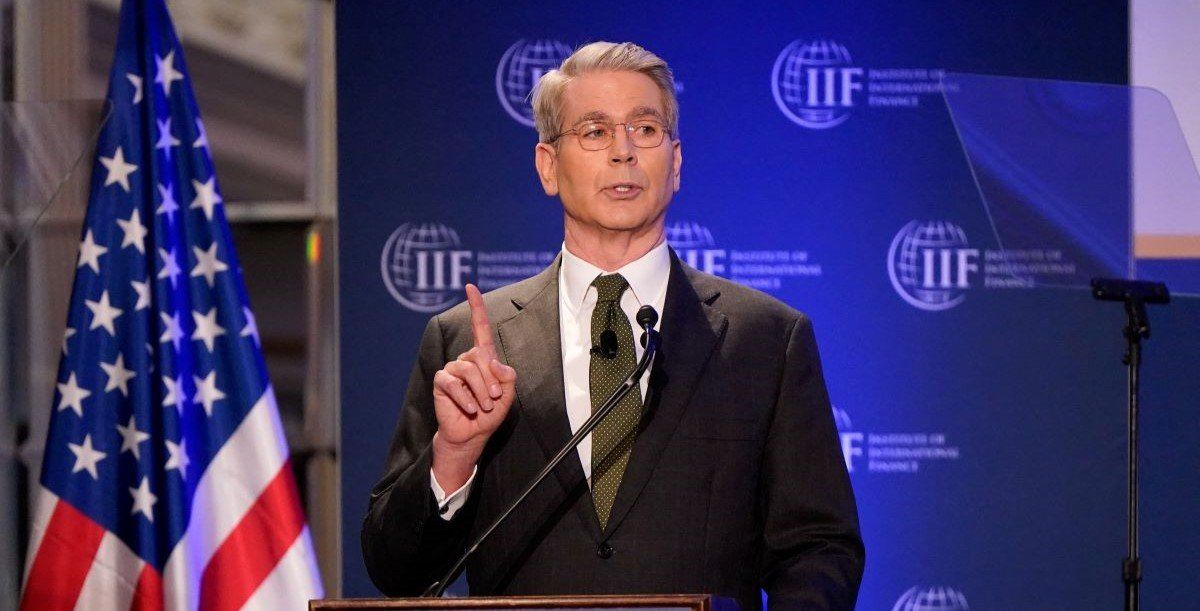Dispatch from DC: Bessent defends tariffs, urges IMF and World Bank reform
US Treasury Secretary Scott Bessent addressed international financiers at the Willard Hotel in Washington, DC, on Wednesday morning, saying that “America First does not mean America alone” but “fairness in the international economic system.”
What does he see as fair? Rebalancing trade and ending the global economy’s overreliance on US demand. “This status quo of large and persistent imbalances is not sustainable,” he said, defending Donald Trump’s tariffs and commending the “more than 100 countries” he says are negotiating with the administration to reduce trade surpluses with the US.
The biggest offender. Speaking with reporters, Bessent rejected rumors that Trump might reduce tariffs on China ahead of talks with Xi Jinping, stressing that any easing would have to be reciprocal.
His speech eased concerns that the Trump administration would withdraw US support from the IMF and World Bank but made clear it would use its influence to reshape the Bretton Woods institutions. To maintain US backing, Bessent said the IMF and World Bank must return to their factory settings. He diagnosed them with “mission creep,” calling on them to stop devoting “disproportionate time and resources to work on climate change, gender, and social issues.”
He also urged tighter lending standards, limiting who qualifies for loans and reducing how long borrowers can remain in arrears. In a pointed message, he called for China – the world’s second-largest economy – to be stripped of its “developing country” status.
“The Trump administration will leverage US leadership and influence at these institutions and push them to accomplish these important mandates.”
